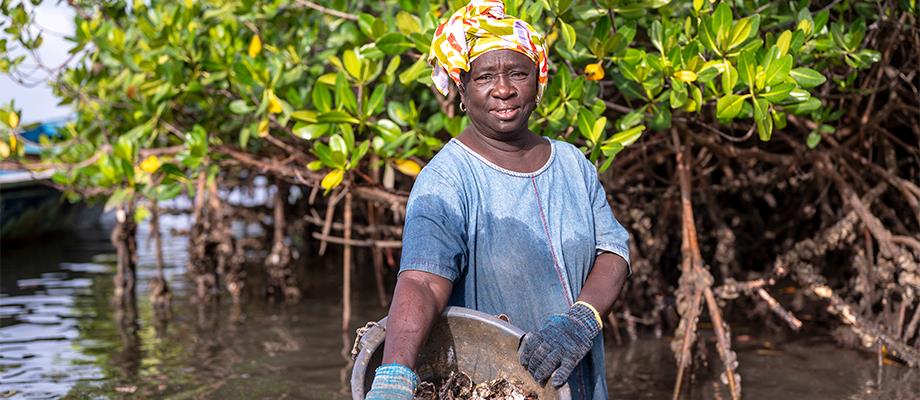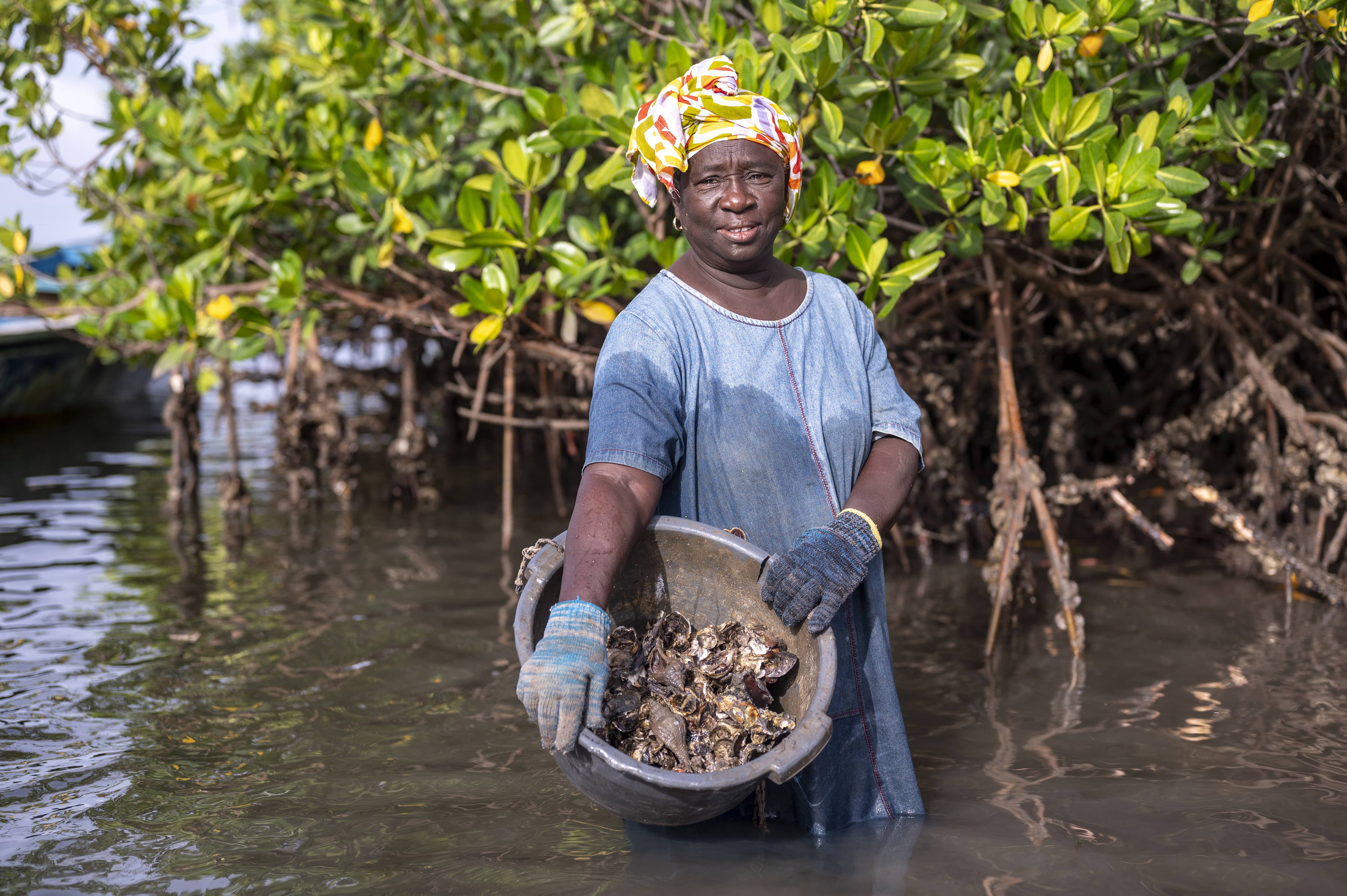Towards sustainable resource management for small-scale fisheries

 |
Small-scale fisheries play a crucial role in supporting the livelihoods of millions of people around the world, particularly in coastal communities. However, the sustainability of the fisheries sector has been a growing concern due to various challenges, including overfishing, habitat degradation, climate change, and inadequate resource management. Small-scale fishers are addressing these challenges in many ways, from direct efforts to improve local habitats and fish stocks, to advocacy for healthy environments supporting their livelihoods. Notable in particular is participation in sustainable resource management - which is critical for small-scale fisheries to thrive while preserving the health of aquatic ecosystems. Effective management strategies help maintain fish populations at healthy levels, protect essential habitats, and mitigate the impacts of climate change.
Chapter 5 of the Voluntary Guidelines for Securing Sustainable Small-Scale Fisheries in the Context of Food Security and Poverty Eradication (SSF Guidelines) focuses on the need to secure tenure rights as a basis for sustainable resource management, providing valuable insights and recommendations to ensure the long-term viability of small-scale fisheries. This is set within the overall framework of the SSF Guidelines that small-scale fisheries management needs to be addressed holistically also taking complex livelihoods and socioeconomic development needs into consideration, which are aspects addressed in the other chapters of the SSF Guidelines and reflected in their general principles.
A key principle is to involve small-scale fisheries actors in the management of fisheries and the SSF Guidelines recommend participatory management systems, such as co-management, taking into consideration their tenure rights and systems When both men and women, engaged in pre-harvest, harvest or post-harvest operations of the small-scale fisheries subsector, are facilitated and supported to take part in management decisions for adopting sustainable practices, they can ensure the availability of fish stocks for future generations, enhance food security, and improve their own socio-economic conditions. Small-scale fishing communities and organizations are already actively involved in a wide range of environmental conservation and stewardship activities and this role should be recognized and strengthened.
§ 5.13 States and all those engaged in fisheries management should adopt measures for the long-term conservation and sustainable use of fisheries resources and to secure the ecological foundation for food production. (SSF Guidelines)
Based on the key elements outlined in chapter 5, fishing communities, governments and relevant stakeholders should work together to ensure sustainable use of fishery resources, safeguard habitats, and enhance the resilience of small-scale fisheries in the face of growing challenges. Achieving sustainable resource management is crucial not only for the well-being of fishing communities but also for the conservation of aquatic ecosystems and the long-term sustainability of global fishery resources. The SSF Guidelines serve as a valuable tool for supporting small-scale fisheries in their efforts towards a more sustainable and prosperous future.
FAO promotes different activities to amplify the sustainable management of resources for small-scale fisheries and coastal communities.
- To support the implementation of the SSF Guidelines, two FAO projects, namely the “Creating an enabling environment for securing sustainable small-scale fisheries” project and the “Implementing the Small-Scale Fisheries Guidelines for gender-equitable and climate-resilient food systems and livelihoods” project, have included the development of National Plans of Action for Small-Scale Fisheries (NPOA-SSF) in selected countries. The NPOA-SSF process is a systematic approach to the implementation of the SSF Guidelines with a framework that enhances the contribution of small-scale fisheries to sustainable development. Upon request, FAO provides technical expertise and support to countries who seek to embark on an NPOA-SSF development process. In addition, to maximize the support provided, FAO is finalizing a free user-friendly toolkit that guides through the three stages of the NPOA-SSF. Two countries have already approved NPOAs: the United Republic of Tanzania and the Republic of Namibia.
- FAO and Saint Mary’s University (Canada), in cooperation with global fisher organizations, have engaged with small-scale fisher organizations and fishing communities worldwide, to document their experiences with environmental conservation and stewardship. This includes activities within fisheries, such as management measures to ensure sustainable use of resources and ecosystems, as well as those with other goals, such as maintaining or restoring local environments, and advocating for broader environmental measures. This work is producing a better understanding of how small-scale fisheries protect and care for the environment, and what leads to success in environmental stewardship and in supporting sustainable livelihoods. The voices of small-scale fishers, describing their stewardship activities, are now online at the SSF-stewardship website (ssf-stewardship.net/) and the results will soon be published as a guidebook, to assist fishing communities and fisher organizations, as well as various stakeholders and policymakers.
- The FAO/GEF Coastal Fisheries Initiative and the EAF-Nansen Programme/Norad are joining forces to support a review of legislation, including through a workshop aimed to strengthen the capacities of technical personnel from the Côte d’Ivoire Ministry of Animal and Fisheries Resources (MIRAH, in its French acronym) in this West African country, where many communities depend on small-scale fisheries for their food and livelihoods. The Côte d’Ivoire government reiterated ”its desire to promote the implementation of adequate mechanisms in order to reposition the sustainable management of fisheries squarely within the country’s political, economic and social development,” Sidi Tiémoko Toure, Minister of Animal and Fisheries Resources, told participants in a keynote speech read by a representative, MIRAH Technical Fisheries Advisor Kodjo Alain. CFI-WA Coordinator Fatou Sock highlighted ”the principle of the participation of fishers and fish workers in fisheries management” as a key aspect of successful management of natural resources that is in line with the SSF Guidelines.
- The Coastal Fisheries Initiative worked together with the Marine Stewardship Council to provide small-scale fishers with the tools to manage their resources sustainably in Cabo Verde. “We cannot reach this goal without involving fishers and fish workers as well as scientists and authorities, because sustainability must embrace multiple dimensions — the social, the economic and the environmental. By addressing the needs of the communities and strengthening their voice, knowledge, skills and decision-making capacities, we can help ensure better livelihoods in healthier ecosystems,” commented Ms Fatou Sock, FAO Fishery Officer and CFI Chief Technical Advisor.
- The General Fisheries Commission for the Mediterranean (GFCM) is taking concerted action to promote the long-term sustainability of small-scale fisheries in the Mediterranean and the Black Sea. The Regional Plan of Action for Small-Scale Fisheries in the Mediterranean and the Black Sea (RPOA-SSF) states that an environmentally, socially and economically sustainable future for the subsector requires careful planning, regulation, monitoring and control to create an equitable sector for small-scale fisheries actors and encourage best practices through: access rights, selectivity and biodiversity preservation, technology and equipment, and monitoring, control and surveillance.
- FISH4ACP is working towards a sustainable, resilient, well-managed and inclusive shrimp fishery in Guyana to strengthen its position as a leading exporter of seabob shrimp while ensuring long-term stability of stocks and bringing more benefits to local fisher folk, especially women. To improve the sector’s productivity and reduce its ecological footprint, a broad partnership with the African, Caribbean and Pacific States (OACPS), the European Union (EU), the German Federal Ministry for Economic Cooperation and Development (BMZ), national and regional partners joined hands to tackle major challenges, such as a declining stock, while maximizing the benefits for local fisher folk, in particular for women.
